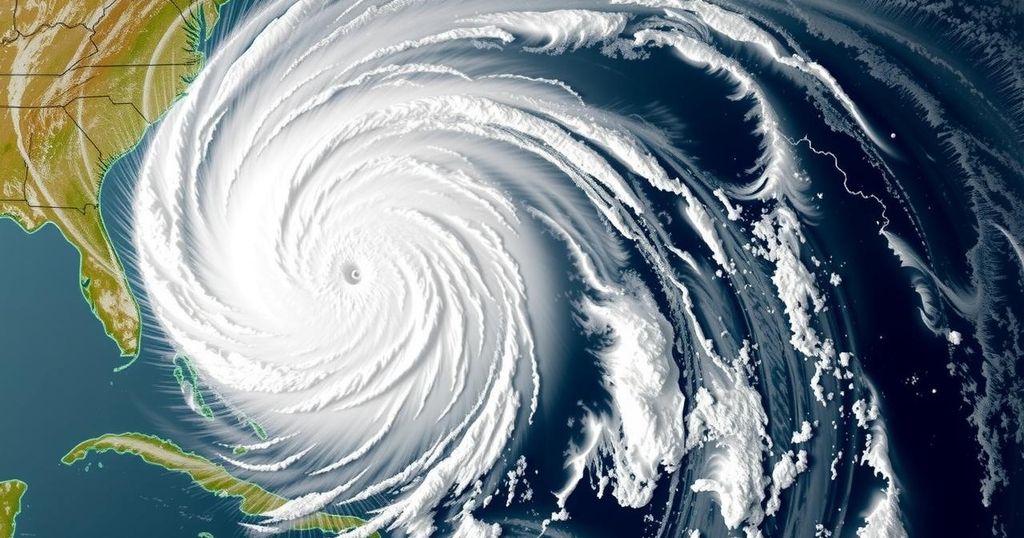Devastation from Cyclone Chido Strikes Mayotte and Threatens Africa’s East Coast

Cyclone Chido has caused several fatalities and extensive damage in Mayotte, with initial assessments indicating a high potential toll as it heads towards Mozambique. Authorities are mobilizing rescue teams, and millions more in Africa are at risk. Past experiences reveal a troubling trend of worsening cyclones linked to climate change, exacerbating humanitarian crises in already vulnerable regions.
Cyclone Chido has wreaked havoc on the French territory of Mayotte, resulting in several fatalities and extensive damage as it approaches the east coast of Africa. Initial assessments indicate that there have been at least a few deaths, but the exact toll remains uncertain as rescuers have yet to fully evaluate the situation. With winds surpassing 220 kph (136 mph), the cyclone has caused significant infrastructural damage, including to public facilities, homes, and the local airport. French authorities are mobilizing resources, including the deployment of police and rescue teams, to assist affected populations. The storm is also impacting the neighboring Comoros islands and is predicted to move towards Mozambique, where millions are projected to be at risk of flooding and other related disasters.
French Interior Minister Bruno Retailleau cautioned, “We’re afraid the toll will be high, but for the moment I can’t give any figures,” emphasizing the devastating impact on the island, which has a history of economic challenges. Additionally, the cyclone poses a severe risk of subsequent health crises due to potential flooding and stagnant water, which may lead to outbreaks of cholera, malaria, and dengue fever—a concern highlighted after previous cyclones in the region.
As the storm progresses, authorities in Mozambique, Malawi, and Zimbabwe are on high alert, preparing for inevitable adverse effects. This cyclone, part of a recurring pattern intensified by climate change, poses humanitarian challenges to countries with minimal contributions to global climate change yet facing the consequences.
The current cyclone season, lasting from December to March, has historically been difficult for southern Africa, reminding us of past devastating storms, such as Cyclone Idai and Cyclone Freddy, which collectively resulted in significant loss of life and widespread destruction across the region. These recent events underline the urgency for increased global awareness and support in addressing the impacts of climate change in vulnerable areas.
The recent events surrounding Cyclone Chido underline the increasing frequency and intensity of cyclones in the Indian Ocean and southern Africa, predominantly attributed to climate change. These natural disasters not only threaten lives but also disproportionately affect poorer nations that are ill-equipped to handle such crises. The cyclone season, marked from December to March, has historically posed severe risks, resulting in humanitarian disasters in affected regions, notably in countries like Mozambique, Malawi, and Zimbabwe, which have faced catastrophic flooding and health crises following similar occurrences in recent years.
In summary, Cyclone Chido has caused devastation in Mayotte and poses significant threats as it progresses towards mainland Africa. The French government is expediting rescue efforts amidst a disheartening assessment of potential casualties and damage. As neighboring regions brace for impact, the cycle of destruction driven by increasingly severe weather patterns accentuates the urgent need for comprehensive response strategies to mitigate the effects of climate change on vulnerable populations.
Original Source: www.cnn.com








